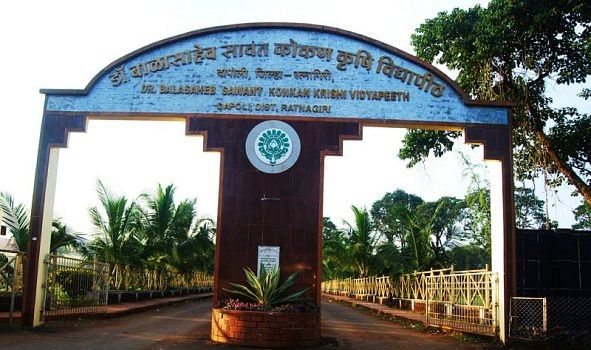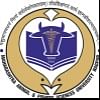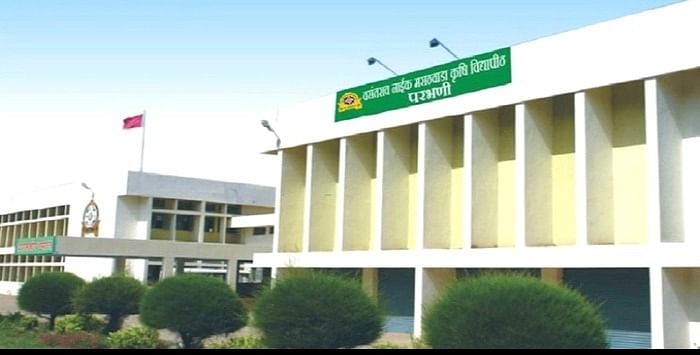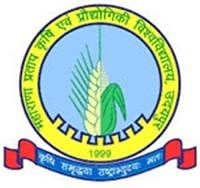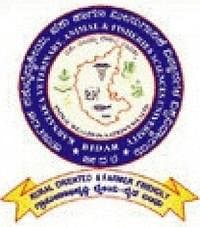BFSc Syllabus and Subjects 2026

The BFSc syllabus is industry-oriented and provides necessary knowledge of various aquatic ecosystems. The syllabus also encompasses the scientific study of freshwater, marine, and coastal aquatic systems. The BFSc course is for students interested in aquaculture, marine life, environment, fishing and machines, building solutions to various problems, and other computing-related domains.
BFSc subjects include topics such as the Physiology of Finfish & Shellfish, Freezing Technology, Fish immunology, Fish Food Organism, Genetics and Breeding, Taxonomy, and so on.
Table of Contents
Semester Wise BFSc Syllabus
The Bachelor of Fisheries Science syllabus provides a comprehensive insight into the multidisciplinary field of fisheries science which includes fish processing, freshwater biology, oceanography, bioeconomics, marine biology, ecology, etc. Students can download the BFSc syllabus pdf version to know more about the curriculum. The semester-wise Bachelor of fisheries science syllabus is given below:
First-Year BFSc Syllabus
The BFSc subjects in the 1st Year syllabus are given below:
| Semester I | Semester II |
|
Principles of Aquaculture |
Freshwater Aquaculture |
|
Principles of Biochemistry |
Soil and Water Chemistry |
|
Taxonomy of Finfish and Shellfish |
Aquaculture Engineering |
|
Fundamentals of Microbiology |
Limnology |
|
Fundamentals of Microbiology |
Marine Biology |
|
Fishery Economics |
Fish Nutrition and Food Technology |
Practical Topics in the 1st Year BFSc Syllabus
Any fishery subject is inclined towards practical work. Some of the practical subjects in the first-year BFSc syllabus are given below:
- Collection and identification of commercially important inland and marine fishes
- chromosome preparation and identification
- DNA polymorphism
- Study of food and feeding habits of finfish and shellfish
| BFSc Scope in India | Top B.F.Sc Colleges in India |
Second-Year BFSc Syllabus
The BFSc subjects in the 2nd Year syllabus are given below:
| Semester III |
Semester IV |
|
Culture of Fish Food Organisms |
Ornamental Fish Production and Management |
|
Oceanography |
Food Chemistry & Fish in Nutrition |
|
Inland Fisheries |
Biochemical Techniques & Instrumentation |
|
Refrigeration and Freezing Technology |
Fish Genetics and Breeding |
|
Statistical Methods in Fisheries |
Food Chemistry and fish nutrition |
|
Fisheries Administration and Legislation |
Extension Education in Fisheries |
|
Physiology of Finfish and shellfish |
Fish Canning and Packaging Technology |
Practical Topics in the 2nd Year BFSc Syllabus
Any fisheries subject in the 2nd year BFSc syllabus includes a significant amount of lab work on techniques and instrumentation. Some of the practical subjects in the second-year BFSc syllabus are given below:
- Wet mount and hanging drop preparations
- Pathogens of aquatic animals
- Study of external morphology
- identification of commercially important shellfishes
| B.F.Sc Colleges in Maharashtra | B.F.Sc Colleges in Punjab |
Third-Year BFSc Syllabus
The BFSc subjects in the 3rd Year syllabus are given below:
|
Semester V |
Semester VI |
|
Finfish & Shellfish Breeding and Hatchery Management |
Fish Population Dynamics and Stock Assessment |
|
Marine Fisheries |
Fish Products and Byproducts Technology |
|
Diseases and Management |
Aquatic Pollution and Coastal Zone Management |
|
Aquatic Ecology and Biodiversity |
Fish Microbiology and Quality Assurance |
|
Disaster Management in Fisheries |
Fish freezing Technology |
|
Navigation and Seamanship |
Financing and Marketing Management in Fisheries |
Practical Topics in the 3rd Year BFSc Syllabus
Some of the practical topics in the third-year Bachelor of Fisheries Science subjects are given below:
- Determination of physical characteristics of lentic water bodies
- Collection and identification of freshwater phytoplankton
- Proximate composition analysis of feed ingredients and feeds
- Effect of Storage on feed quality
| B.F.Sc Colleges in Kerala | B.F.Sc Colleges in Bihar |
Fourth-Year BFSc Syllabus
The BFSc subjects in the 4th Year syllabus are given below:
|
Semester VII |
Semester VIII |
|
Fisheries Biotechnology and Bioinformatics |
ELP in Fish Post Harvest Technology |
|
ELP in Aquafarming |
Fish Gear Technology |
|
Pharmacology |
Microbiology of fish and fishery products |
| Fish products Technology | Refrigeration and Equipment Engineering |
| Project | Project |
Practical Topics in the 4th Year BFSc Syllabus
Some of the practical topics in the fourth-year Bachelor of Fisheries Science subjects are given below:
- Observation of soil qualities and seepage parameters
- Extraction of DNA determination of Enzyme activity
- Estimation of oxygen consumption in fish
- Identification of common ornamental fishes
| B.F.Sc Colleges in Uttarakhand | B.F.Sc Colleges in West Bengal |
BFSc Subjects
BFSc subjects provide theoretical and practical knowledge of Culture fishery, Capture fishery, Marine fishery, Freshwater fishery, and several core-functional areas of fishery science. Some of the Bachelor of Fishery Science subjects are given below:
Core Subjects:
The BFSc syllabus and course curriculum are structured with several core subjects related to fishery science. Some of the core BFSc subjects are given below:
- Physiology of Finfish and Shellfish
- Freezing Technology
- Fish immunology
- Fish Food Organism
- Genetics and Breeding
- Taxonomy
- Fishery Economics
- Meteorology and Geography
- Oceanography
BFSc Subjects in Detail
The syllabus of BFSc is dynamic and includes the study of several areas such as Aquaculture, Soil and Water Chemistry, Biotechnology, Bioinformatics, etc. A detailed view of some of the BFSc subjects is given below:
|
BFSc Subjects |
Topics Covered |
|
Principles of Aquaculture |
History of aquaculture, Aquaculture vs Agriculture, Monoculture, Polyculture, and integrated culture systems |
|
Anatomy of Finfish and Shellfish |
Cell structure, Tissue and body organization, Circulatory system, Respiratory system, Skeletal system |
|
Fish Nutrition and Feed Technology |
Nutritional requirements of cultivable fish, Feed additives, Feed evaluation, Forms of feeds |
|
Aquaculture Engineering |
Land survey, Area calculation of plane surface, Topography, Simpson’s rule, Freshwater, and coastal aquafarms |
|
Diseases and Management |
Significance of fish diseases, Defense mechanisms in Finfish and Shellfish, Zoonotic diseases, Antibody, and nucleic acid-based rapid diagnostics |
|
Biotechnology & Bioinformatics |
DNA as genetic material, Chemistry of nucleic acids, Genetic code, Concept of replication, Hybridoma technology |
B.F.Sc Course Structure
The course curriculum of BFSc has been divided into eight semesters, consisting of foundation and core subjects along with projects. Skill development programs and certification courses are essential components of BFSc. The general course structure is given below:
- VIII Semesters
- Core subjects
- Practical and Laboratory
- Projects
- Internal Assessment
- Internship
B.F.Sc Teaching Methodology and Techniques
The B.F.Sc curriculum includes various teaching methods and techniques that help students to understand multiple topics taught in their classes. Seminars, industry visits, and guest lectures are essential components of effective training. Some of the different training methodologies adopted in the B.F.Sc courses are as follows:
- Practical & Laboratory Sessions
- The Emphasis of Practical Learning
- Designing Cost-Effective and Straightforward Experiments
- Guest Lectures, Seminars, and Workshop
- Group Assignment and Discussion
- Learning through Industrial Visit
BFSc Projects
Project Topics under the BFSc syllabus help to acquire industry-oriented skills and practical experience in fishery science. The project work needs to be submitted at the end of the seventh and eighth semesters. Some of the project topics under the fisheries syllabus are given below:
- Economic Analysis Of Fish Production
- Fish Abundance And Distribution Of Three Water Bodies
- A Study On The Preliminary Knowledge Of Aquaculture
- Challenges Of Women Involved In Aquaculture Activities
- Impact Of Climate Change On Fisheries And Aquaculture
- The Potentials Of Aquaculture Development In Fishing Communities
B.F.Sc Books
Reference books help students to understand various subjects in-depth and expand their knowledge about multiple topics covered in their classes. Some of the best books for BFSc are given below:
|
Books |
Authors |
|
The Nature of Nature |
Enric Sala |
|
Ocean Recovery: A Sustainable Future for Global Fisheries |
Ray Hilborn, Ulrike Hilborn |
|
Aquaculture: Principles and Practices |
Geoffrey Gilbert |
|
Vanishing Fish: Shifting Baselines and the Future of Global Fisheries |
Daniel Pauly, Jennifer Jacquet |
|
Fishes of Arkansas |
Henry W. Robison, Thomas M. Buchanan |
Top BFSc [Bachelor of Fisheries Science] Colleges
Top Science Entrance Exams
BFSc Fee Structure
FAQs on BFSc Syllabus and Subjects
Q: What is the 1st year syllabus of BFSc?
Q: What are the core subjects in BFSc?
Q: How many semesters are there in the BFSc course?
Q: What are the essential books for BFSc?
Q: What are the practical subjects in BFSc?


